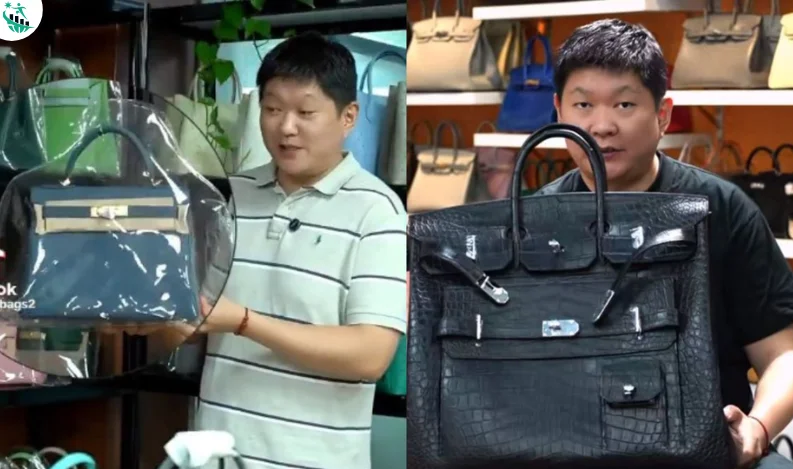
TikTok Videos Fuel Trade War Chaos by Pushing Fake Luxury Goods to U.S. Consumers
BEIJING/NEW YORK — As U.S.-China trade tensions continue to escalate, a new front has emerged in the digital battlefield — TikTok. The popular short-form video platform is now under scrutiny as Chinese manufacturers exploit it to market counterfeit luxury goods, capitalizing on tariff-driven price hikes and targeting American consumers directly.
The trend is sparking alarm across the fashion industry and raising questions about social media's role in the black-market economy.
Tariffs and TikTok: A New Counterfeit Pipeline
In the wake of increased tariffs imposed by the U.S. on Chinese imports, American consumers have faced steep price hikes on a range of goods, including premium fashion items. Opportunistic sellers on TikTok have seized on this moment, using viral videos to promote lookalikes of brands such as Hermès, Louis Vuitton, and Lululemon at a fraction of the cost.
Often shot in actual Chinese factories, the videos claim these products are “made in the same facilities” as the originals — minus the brand logo — creating the illusion of authenticity without legal culpability.
“We use the same materials, the same machines, but we remove the tags,” a seller claims in one video, promising “1:1 luxury quality without the name.”
Luxury Brands Fight Back
Major global luxury houses have aggressively pushed back, denying any connection to the factories featured in these videos and warning consumers against being misled.
A spokesperson from one luxury group told The Economic Times:
“These claims are categorically false. None of our authorized products are made in those facilities, and we strongly advise consumers not to fall for counterfeit marketing tactics.”
Luxury brands, including LVMH, Gucci, and Chanel, have launched renewed investigations into counterfeit trafficking, urging governments and platforms to implement stricter enforcement and monitoring mechanisms.
Legal and Safety Risks for Consumers
While these items may seem like harmless dupes, industry experts caution that counterfeit products come with serious risks:
-
Intellectual Property Violation: Purchasing fakes fuels a global black market and undermines legitimate businesses.
-
Safety Hazards: Many products fail to meet safety standards and may contain harmful materials or poor-quality stitching that can cause injury.
-
Ethical Concerns: Counterfeit goods often involve labor exploitation and unregulated working conditions.
“These aren’t just fashion knockoffs — they’re dangerous products masquerading as deals,” said a U.S. customs official.
TikTok’s Response and Platform Accountability
While TikTok has community guidelines prohibiting illegal and harmful activity, enforcement remains a challenge. The rapid and algorithm-driven spread of content makes it difficult to intercept counterfeit promotion before it reaches millions of users.
TikTok has reportedly removed several accounts and flagged counterfeit-related content, but critics argue that enforcement is not keeping pace with the evolving tactics of counterfeiters.
The Bigger Picture: Global Trade and Consumer Temptation
This phenomenon underscores the unintended consequences of trade protectionism, particularly tariffs that inadvertently boost black market alternatives. The combination of inflation, high import costs, and social media accessibility has created a perfect storm.
“Consumers feel justified in seeking alternatives when luxury prices become unattainable — even if it means turning to counterfeits,” says Prof. Helen Wei, an expert on global consumer behavior.
Conclusion: A Call for Action
As TikTok becomes an unlikely arena in the global trade war, the rise in counterfeit luxury sales online is no longer just a niche issue. It’s a full-blown challenge to brand integrity, consumer protection, and trade enforcement.
Industry leaders are urging:
-
Stronger cross-border regulation
-
Increased consumer education
-
Greater platform accountability
With global e-commerce rapidly evolving, the battle against counterfeit culture must adapt just as quickly — or risk further erosion of trust in luxury, trade policy, and the digital marketplace itself.



Recent Comments:
No comments yet.